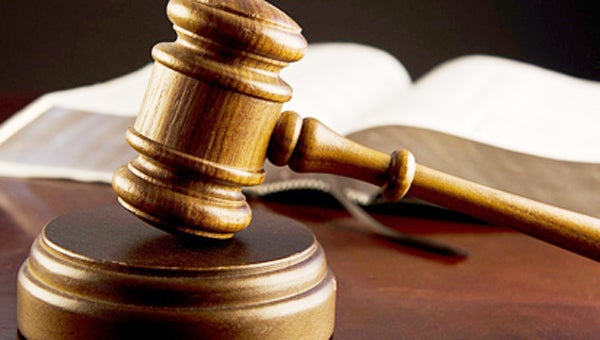Water scandal employee sues St. John
Published 12:07 am Saturday, June 20, 2015

- LaPlace resident Kevin Branch names “St. John the Baptist Parish” as defendant in the suit, which was filed into record at the St. John Parish Clerk of Court’s Arcuri Center at 2:45 p.m. June 10.
LAPLACE — A man central to the St. John the Baptist Parish water amoeba scandal is suing after he said his due process rights and rights under the Family Medial Leave Act were violated.
LaPlace resident Kevin Branch names “St. John the Baptist Parish” as defendant in the suit, which was filed into record at the St. John Parish Clerk of Court’s Arcuri Center at 2:45 p.m. June 10.
Parish President Natalie Robottom said she is aware of the suit but will not make a comment at this time due to pending litigation.
Attorney General Buddy Caldwell announced May 12 two former St. John the Baptist Parish Water Works employees — including Branch — pleaded guilty to false swearing for covering up their failure to properly collect and record water samples from testing sites where a brain-eating amoeba was found in the parish’s water system.
The investigation that led to the indictments resulted from the Aug. 27 announcement that water taken in a sample two weeks earlier from St. John the Baptist Parish Water District 1 tested positive for Naegleria fowleri amoeba, commonly known as the “brain-eating” amoeba.
According to Laura Gerdes, a spokeswoman for the Attorney General’s Office, evidence indicated Branch falsified paperwork related to the water samples he was tasked with collecting to ensure the public water met specific quantities of residual chlorine as required by Louisiana law.
Branch was sentenced to one year in parish prison, with that sentence suspended, and six months of probation. He was ordered to pay a $400 fine and perform 80 hours of community service.
According to his suit’s Statement of Facts, Branch received a certified letter Oct. 5 informing him he was “being placed on suspension without pay, pending the outcome of the … investigation.”
Branch said on Oct. 23 he contacted the parish and Civil Service Board objecting to his suspension “on grounds he was denied a hearing before the adverse employment action was taken.”
Over a week passed before Branch received an answer, he said, adding on Oct. 29 received an email stating the person responsible for answering his request would be out until Nov. 11.
The suit states “sometime after Nov. 18” parish officials contacted Branch and told him he could return to work.
Branch remained employed until March 13, when he received notice of his termination.
In April Branch contacted the parish Civil Service Board to notify them of his intent to appeal his October suspension without pay, “on grounds that he was denied notice and opportunity to be heard.”
Branch appeared before the Civil Service Board in May, and in an adverse 4-3 decision was denied back pay.
The suit alleges Branch’s rights were further violated under provisions of the Family Medical Leave Act, which “entitles … employees to continued maintenance of their health care benefits during their leave” and “to return to their positions at termination of leave.”
“The administration suspended (Branch), without pay, while he was on FMLA leave,” the suit states.
Nghana Lewis Gauff, Branch’s attorney, said the importance of the case “lies in the deficiencies it exposes in how our parish government manages basic human resource matters governing public employees.
“Mr. Branch lost his job and, to my knowledge, has not obtained new employment that affords him a salary and benefits comparable to what he was earning as a parish employee; so his ability to care for himself and his family remains compromised,” Gauff said. “As a citizen of this parish, as a citizen of the United States, it disturbs me that the parish so cavalierly violated Mr. Branch’s fundamental due process rights.”
Gauff said she hopes this suit will result in “the administration taking the steps needed to properly train human resource personnel and Civil Service Board appointees in basic procedures they must follow to avoid violating the Constitutional rights of public employees and to remain accountable to the public as a whole.”
According to the suit, Branch is seeking compensatory and general damages, reasonable attorney fees and costs, punitive damages, judicial interest from the date of demand and “all other relief deemed just and equitable” by the court.





